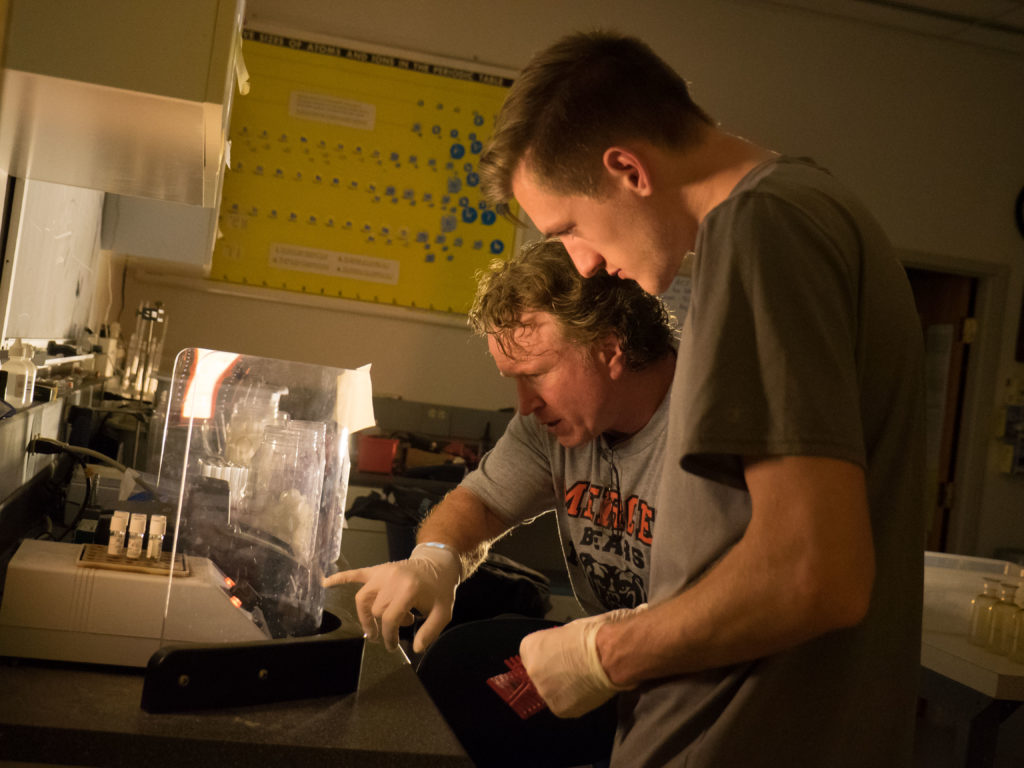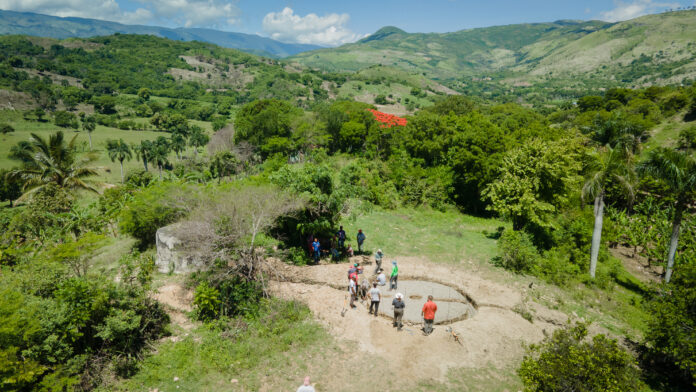For many, clean water comes as easily as the turn of a faucet knob. However, roughly 2 billion people in the world lack access to this resource that’s essential to their life, health and food supplies, according to the World Health Organization.

Mercer University professors have been working on solutions to pressing water issues and bringing clean water to communities in need, both locally and abroad. Since June 2020, the Cecil Day Family Center for International Groundwater Innovation has provided additional support to accelerate Mercer On Mission and School of Engineering initiatives that address the global water crisis.
“Mercer has a history of water-focused projects,” said Dr. Philip McCreanor, environmental engineering professor. “One of the most pressing issues we face as a world is providing clean drinking water to people. We can have a major impact on lives by improving their access to clean water.”
The center, first led by the late Dr. Michael MacCarthy and now by Dr. Adaline Buerck, focuses on water innovations related to household self-supply, small community water systems and global groundwater innovation.
“The mission that I have created for the center is to be a hub for fostering research, innovation, education and collaboration for establishing and implementing best practices and access to improved water,” said Buerck, director of the center and assistant professor of environmental and civil engineering.
Lasting change
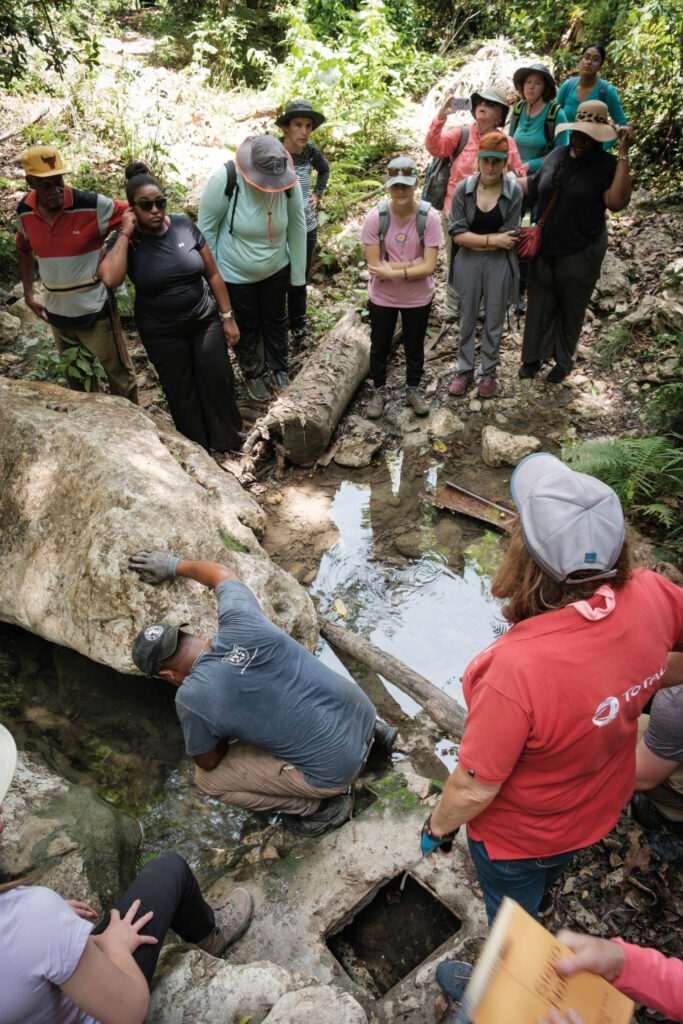
The centerpiece of Mercer’s water work is its overseas initiatives through Mercer On Mission, a study abroad and service-learning program dedicated to solving real-world problems. Since 2010, faculty and students have installed water systems in rural communities in Kenya, Madagascar, Uganda and the Dominican Republic. This Mercer On Mission program was established by Dr. MacCarthy and has been continued by engineering professors Dr. Natalia Cardelino and Dr. Laura Moody.
“The invaluable part is you are creating something that is going to last there for years to come,” said Dr. Cardelino, assistant professor of environmental and civil engineering. “It’s providing this drinking water for these communities that have nothing.”
Dr. Cardelino leads the water tank construction for this Mercer On Mission program. Using local materials, the Mercerians build a spring box that protects the community’s water source and a tank for water storage and treatment. They also lay piping that transports the water from the spring box to the water tank and then from the water tank to taps on homes, she said.
Local materials are used to make the concrete for the tanks, the infrastructure of which keeps the water as free from contamination as possible. Through her ongoing research, Dr. Cardelino has been studying ways to make the concrete used in construction more sustainable.
She has experimented with using materials like crushed glass as a sand substitute and compared the concrete mixed in the Dominican Republic to standard American concrete.
“The invaluable part is you are creating something that is going to last there for years to come. It’s providing this drinking water for these communities that have nothing.”
Dr. Natalia Cardelino, Assistant Professor of Engineering
Led by Dr. Buerck, the Mercer On Mission participants also test water for heavy metals, bacteria and other water components. This data can be used to improve the water systems and make necessary changes in water treatment, Dr. Buerck said.
Dr. Buerck is in the process of obtaining an innovative new drilling technology that could be a game-changer for future Mercer On Mission trips. With its compact design, the device could be carried by one or two people into remote locations to drill water wells. Mercer will be one of the first institutions to use this new technology.
“A lot of the world population that is in most need of water is in these really mountainous, remote locations where you can’t get normal drilling equipment,” she said. “The drill should be able to drill through different types of rock and sediment as well as be compact enough to bring into remote locations. It could fill that niche gap that’s currently lacking.”
Once the drill is received, Dr. Buerck and her team will test it in local rock quarries in preparation for using it in the Dominican Republic in summer 2024. If successful, the drill could be utilized for other Mercer On Mission programs in the future.
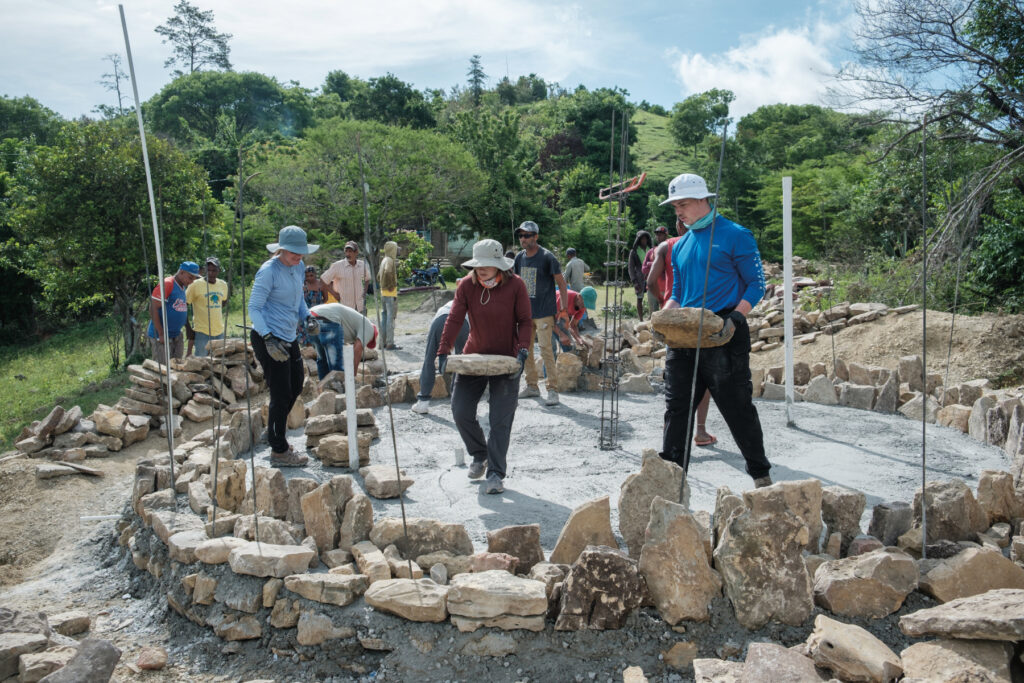
Sustainable solutions
The Groundwater Innovation Center is also dedicated to water solutions and education on a local level. It aims to provide awareness through outreach efforts and to involve many Mercer schools and departments in its work, Dr. Buerck said.
“In terms of doing research on pressing issues related to clean water, we need multiple disciplines and people with different expertise to get involved,” said Dr. Sarah Bauer, assistant professor of environmental and civil engineering. “The groundwater center is the perfect space and avenue to get all of those faculty members together and work on some impactful research.”
Dr. Bauer began growing butter lettuce in her lab utilizing a hydroponics growth system in summer 2023. Hydroponics, a type of controlled environment agriculture technique, grows crops in water infused with nutrients rather than in soil.
With food shortages and food insecurity increasing across the globe, controlled environment agriculture looks at ways to grow foods not just on farms but in urban areas and cities, such as inside buildings. Growing crops closer to where people live gives them easier access to nutritious foods, she said.
“Our traditional farming techniques demanding natural resources, depleting land of resources, and using large amounts of water for irrigation isn’t going to cut it anymore. That’s not going to be able to sustain us as a nation going forward,” Dr. Bauer said. “(With hydroponics), we are controlling the environment to grow efficient, productive crops while utilizing less space and resources.”
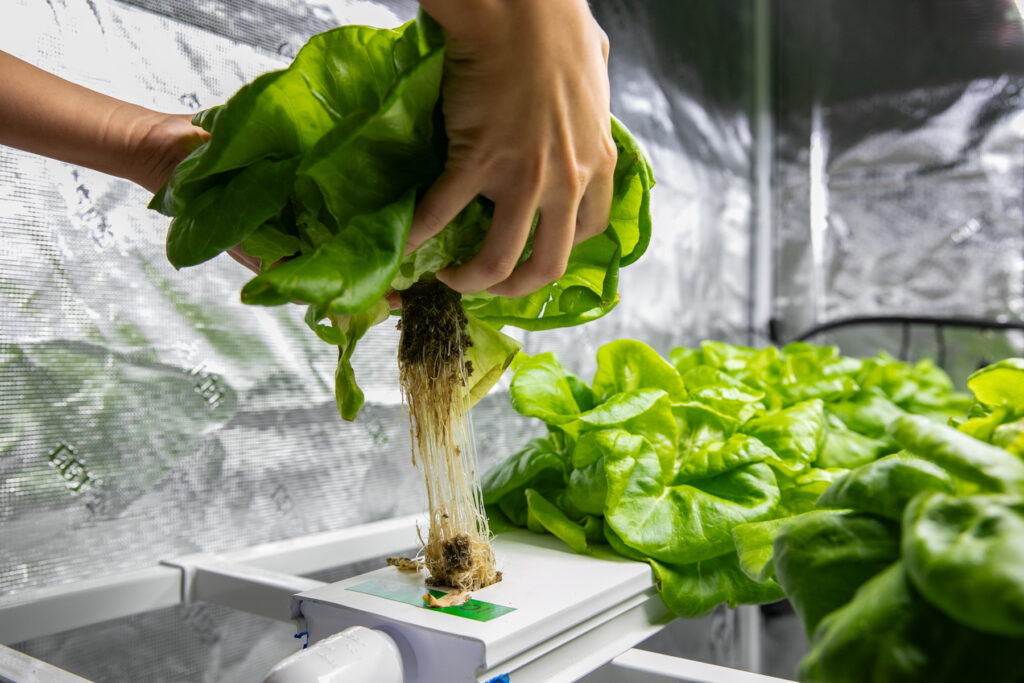
In her lab, Dr. Bauer and her student team can grow 48 heads of lettuce at once. They are able to monitor and control the light, temperature, humidity, carbon dioxide levels, nutrients, and water distribution and usage. In the future, Dr. Bauer plans to grow other leafy greens and experiment with using different types of wastewater or gray water — used household water that does not include sewage — since using drinking water to grow crops is not an environmentally sustainable solution.
“I am very happy with what we’ve been able to do so far,” Dr. Bauer said. “It’s something that’s really relevant to our lives and really important for the future of our society. Being involved in this research is a great opportunity for our students to become more sustainability-minded and make an impact on society.”
Dr. McCreanor and his students have been studying gray water for two decades. This research has resulted in the design and installation of gray water treatment systems at some Macon Area Habitat for Humanity houses, allowing gray water to be reused for yard irrigation.
All the water that flows from household appliances and fixtures goes through the same treatment process at local wastewater treatment plants. When gray water is reused, it reduces water usage and water bills as well as the burden on both potable and wastewater treatment plants, Dr. McCreanor said.
Dr. McCreanor and his students built above-ground retention and filtration systems in two Habitat for Humanity homes in the early 2010s; installed an in-ground gray water treatment system with a settling tank and an attached growth biological treatment unit at a Habitat home in 2016; and upgraded the system at one of the initial Habitat homes with lighter-weight materials and new bio-filtration technology in 2019.
Students continue to be involved in monitoring these systems, and Dr. McCreanor hopes to install systems in additional homes in the future.
“You look at how valuable and scarce water is all over the world, and we water our yards with drinking water,” he said. “Reusing that water in safer ways makes us all better environmental stewards.”
